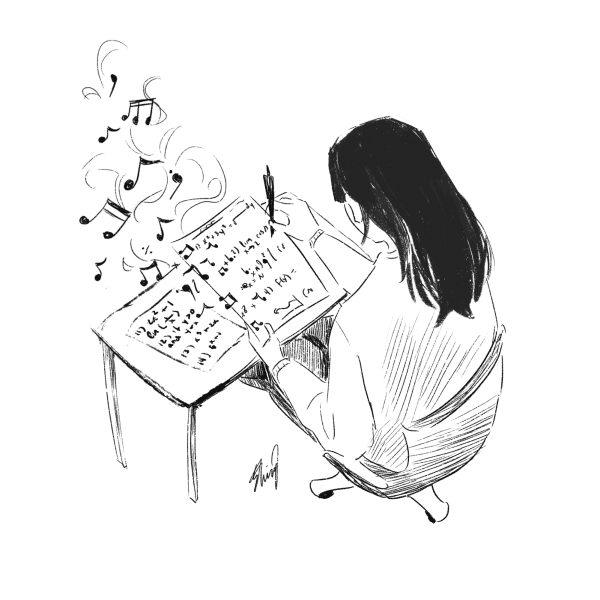
As a kid, I always dreaded my piano lessons. I would do everything to try to get out of them: I fought with my sister about who would go first, didn’t remind my mom when she forgot, and just flat-out refused. When my pleas fell on deaf ears, I would often go to the piano bench grumbling. But once the 30 minutes were up, I felt surprisingly at ease, and as the years went on I found myself lingering at the piano bench, messing around on the keyboard.
My traditional Russian immigrant mother made sure that as a child I got a full musical education — first introductory music lessons, and then private piano lessons and music theory. Every day that I complained, she would shake her head and say that I would thank her someday and that it was part of my education. Every day I’d say with full confidence that I wouldn’t.
Now, nine years later, I’m starting to understand. Learning music theory helped me understand math better when I was younger. I learned how to count rhythm, identify patterns, and divide a bar into fractional notes. My brain was being trained to analyze patterns, and I wasn’t even aware of it. In addition, reading, scanning, and interpreting every aspect of a piece made me more aware of details and prepared me for reading and understanding complex texts.
A study written in Psychology of Music by Christopher Bergland concluded that people who had extensive music training in their youth had better executive functioning such as working memory, self-control, and time management. Undergoing musical training strengthened my discipline when I was studying and doing schoolwork.
I made a routine of regularly spending time perfecting music pieces and learning new songs. The consistency and repetition of this routine helped me adjust to staying focused for an extended time and become a better student. Music was a fun way of learning discipline; instead of learning from long, boring pages of math homework, I learned through playing music that I enjoyed. Being able to learn in a way that caught my attention caused me to focus and retain more information. This was so much more effective than the other academic activities I had done, such as Math Club, where I frequently zoned out.
Now, as the beneficiary of my thorough musical education, I have networking opportunities and even a job. I teach both at my studio and on my own, gaining job experience and earning money. This job is enjoyable and not super difficult for me because I’ve spent all these years learning my instrument. Furthermore, getting these jobs from my studio has helped me gain more general experiences in the workforce, not relating specifically to music. I now know how to talk with customers, how payroll works, how to communicate professionally, and how to be more patient when working with people. What I thought was a tiresome hobby that I was forced to do turned into opportunities for jobs and experiences that will help me, even if I may not work permanently in the music industry.
In addition to helping me academically, music also nurtured my creativity and was a way to express myself. As I’ve become more skilled, I am able to sight read and I express my creativity by looking up notes for songs that I listen to and changing the notes up as I play. Music is imaginative as the pieces differ with each new musician. When I pick apart a piece of music that I’m playing and focus intently on how I can make my music better and different, I’m strengthening the neuroplasticity of my brain. Neuroplasticity is the brain’s ability to adapt and grow. According to a study in American Scientist musicians have more neuroplasticity than those who haven’t undergone musical training. Since I have gone through musical training, my brain is more adaptable compared to someone who hasn’t.
Music lessons being part of my education strengthened my mind and honed my creativity. Now, music is a creative outlet where I can express myself and clear my mind of all else, as well as an important building tool that has given me opportunities as I’ve grown older.





